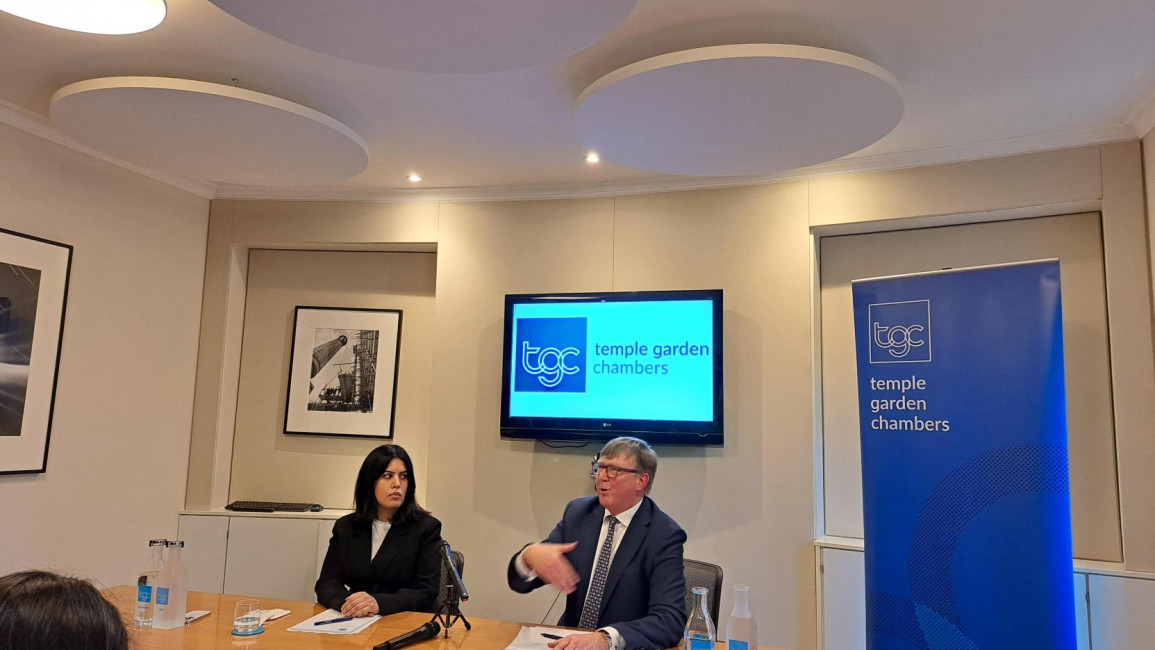Tunisia: Family of detained opposition figure call for sanctions against President Kais Saied
The family of detained Tunisian opposition leader Said Ferjani and the Temple Garden Chambers law firm have filed an application for the UK Foreign Secretary James Cleverly to sanction senior figures in the North African country, including President Kais Saied.
The daughter and son of Ferjani, a leading figure in the Ennahda party and one of the victims making the application, were present at a press conference in London on Wednesday.
Lawyer Rodney Dixon from Temple Garden Chambers announced the launch of the legal appeal which calls for targeted sanctions against "five top-ranking officials".
"It is open to the [UK] foreign secretary to apply this [sanctions] regime directly to the current Tunisian president and his government," said Dixon.
"We have submitted today a confidential filing in which we have set out on behalf of our victim clients evidence of serious human rights violations being committed by the current president…and a number of key officials around him, including two former ministers of interior, the minister for national defence and the justice minister,” he said.
Dixon made clear that the sanctions were targeted at individuals, isolating them from the British political and financial system, imposing travel bans, and freezing assets. He emphasised they were not against the Tunisian people who already face a severe economic downturn.
Ferjani, who was previously detained, tortured, and then exiled to the UK under the regime of longtime dictator Zine el Abidine Ben Ali, was arrested and imprisoned last month, with security forces raiding his home but failing to find any incriminating evidence against him, said his family.
The 68-year-old went on a hunger strike to protest against his dire prison conditions.
He was held in a cell with around 100 other people and authorities didn't take his handcuffs off even when they were carrying out a medical examination, said his daughter Kaouther Ferjani.
"My father has spent most of his life fighting against dictatorship and oppression, whether in Tunisia or as a community activist during his 21 years of exile in the UK," she said.
"His imprisonment along with other political prisoners...is a blatant attempt to suppress opposition voices and peaceful decent."
Kaouther Ferjani said the country had "collapsed under a fascist dictatorship".
President Kais Saied has assumed near-authoritarian powers since July 2021, when he dismissed the government and suspended Tunisia's democratically elected parliament.
He has instituted a series of judicial and constitutional reforms, which have been widely viewed by critics as a shift towards a one-man rule system.
In February this year, Saied oversaw the arrest of a number of opposition figures including Noureddine Bhiri, one of the most prominent figures within Tunisia's Ennahda opposition party, and Noureddine Boutar, the head of radio station Mosaique FM.
Recently, the president caused outrage by making inflammatory remarks against Black Africans in which he accused migrants of conspiring to change the demographic makeup of Tunisia.
Tunisia has been sinking deeper into an economic crisis while reforms needed to secure an IMF loan agreement have been delayed. As inflation surges in the country, many Tunisians have indicated that migrating to Europe may be their only hope of a better life.


![President Pezeshkian has denounced Israel's attacks on Lebanon [Getty]](/sites/default/files/styles/image_684x385/public/2173482924.jpeg?h=a5f2f23a&itok=q3evVtko)



 Follow the Middle East's top stories in English at The New Arab on Google News
Follow the Middle East's top stories in English at The New Arab on Google News


